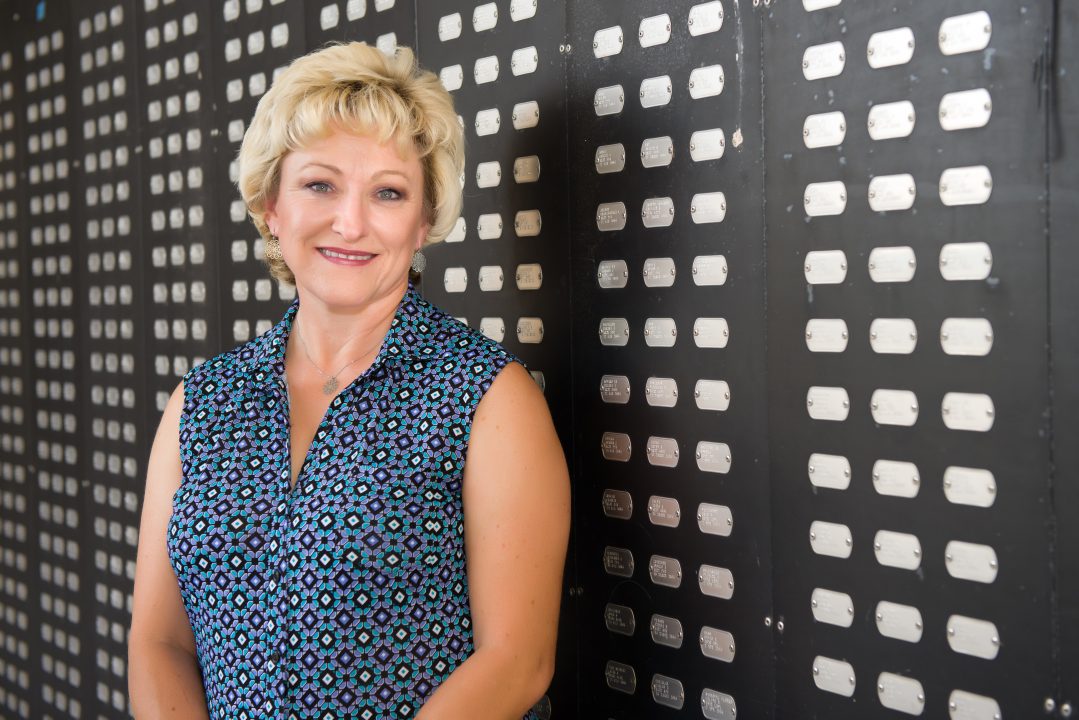TCC Northwest’s Laura Matysek Wood likes to begin her government classes discussing current events, but she found that slow going when everything was online because of the pandemic. She needed something different and found it 1,500 miles away in Montreal, Canada. It was such a success that she and a colleague will present it as a case study at an international conference in October.
Long a proponent of global education, Wood had become intrigued by the growth of international virtual exchanges (IVE) as a possible way to link her students to those in other countries. She went through training programs, attended seminars, buttonholed people and asked plenty of questions. “I’m not shy,” she said.
She eventually connected with Gabriel Flacks, a teacher of humanities at Champlain College, a two-year institution in Montreal and one of the founders of Linkr Education, an online platform that allows faculty to connect their classes with those in other colleges. She visited Flacks’ interactive introduction Linkr and was sold.
“The technology has always been a problem,” Wood said. “We can’t allow students from elsewhere to enter our learning management system (the computer platform for online education), and we can’t enter theirs.” Linkr, however, provides a site where students from one classroom can post information to others, whether they’re in the next county or the next country. It’s also free to individual teachers although colleges who use it extensively must pay a fee. There’s also no cost to students, while a more traditional exchange program would be too expensive for most.
Another problem with IVE has been finding partner colleges. Linkr could help with that, too, via a message board. So, Wood advertised for a partner whose class would join hers in looking at current issues. To her surprise, her first response was from Flacks.
Flacks teaches ethics, not government, but the two corresponded and developed a way their classes could exchange views to the benefit of both curricula. The Canadians started by individually posting an article about current topics to illustrate an ethical theory they had studied in class. The following week, the Americans would post comments on that theory, citing an article (peer-reviewed in a professional journal … no cable news or newspapers) or perhaps giving a personal anecdote to support their view. Then, it was the Americans’ turn to go first, taking a topic given by Wood such as the two countries’ health care policies and giving their viewpoints and again bolstering them with research. The Canadians responded by applying ethical theories they thought relevant to the Americans’ viewpoints.
Back and forth they went over the length of the fall 2020 semester, unlike most IVE’s that are shorter-term team projects. “My students learned so many things,” Wood said. “They learned research. They learned how to respond. They had to be respectful. They were open to new ideas. We really enjoyed it.
“They learned how people in another country view and deal with social problems. Many of our students never realize there may be a totally different way of looking at things – not better or worse necessarily, but different ways to handle such issues.”
It wasn’t a cultural exchange program, although some students used other apps to chat with a new friend in Canada, but perhaps it’s a first step. “Students in these kinds of exchanges are much more likely then to go on a study abroad program,” Wood said. “They’re much more interested in transferring to a university and exploring study abroad. IVE creates the connection, creates the familiarity.”
Wood and Flacks measured the effectiveness of the IVE in part with pre-course and post-course surveys. “The TCC students’ posting increased vastly over the semester,” she said. “And most of them admitted they hadn’t known the difference between a popular resource and a peer-reviewed resource. And they had to get better about making their arguments because the Canadian students sometimes would be very pointed about things they thought our students were oversimplifying.”
The other yardstick was the students’ end-of-course comments about what they’d learned and whether this kind of program should be continued. “And it was overwhelmingly, off the charts, more positive than a believe Gabe and I ever imagined,” Wood said. “One student wrote that it was the best thing she had experienced so far in college.”
Thus encouraged, Wood and Flacks sent in a proposal, which was accepted, to present – virtually, of course – at this year’s International Virtual Exchange conference in October.
Wood hopes to foster IVEs across the District, but she knows where to start – with individual faculty. “Almost all globalization efforts have started with individual faculty,” she said. “Bottom-up has been the way because you’ve got to get the faculty to want to do this, but we’re doing a lot of sort of piloting, trying to work these things out at TCC Northwest and then grow them across the District. We’re very excited about it.”

